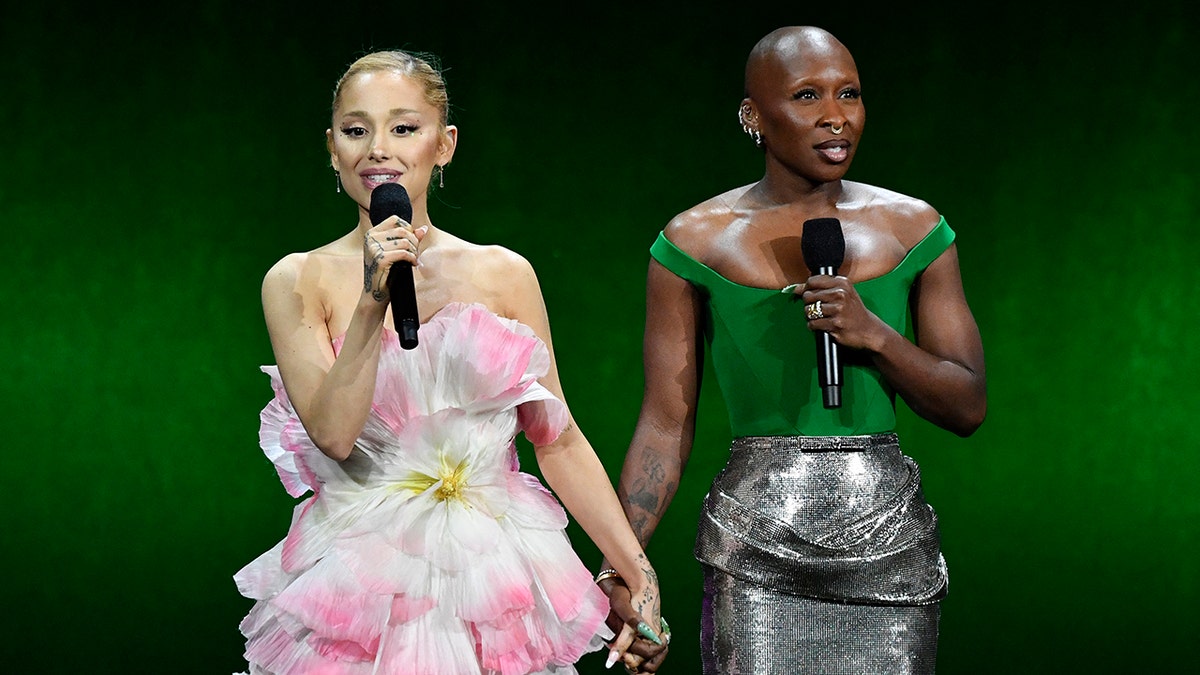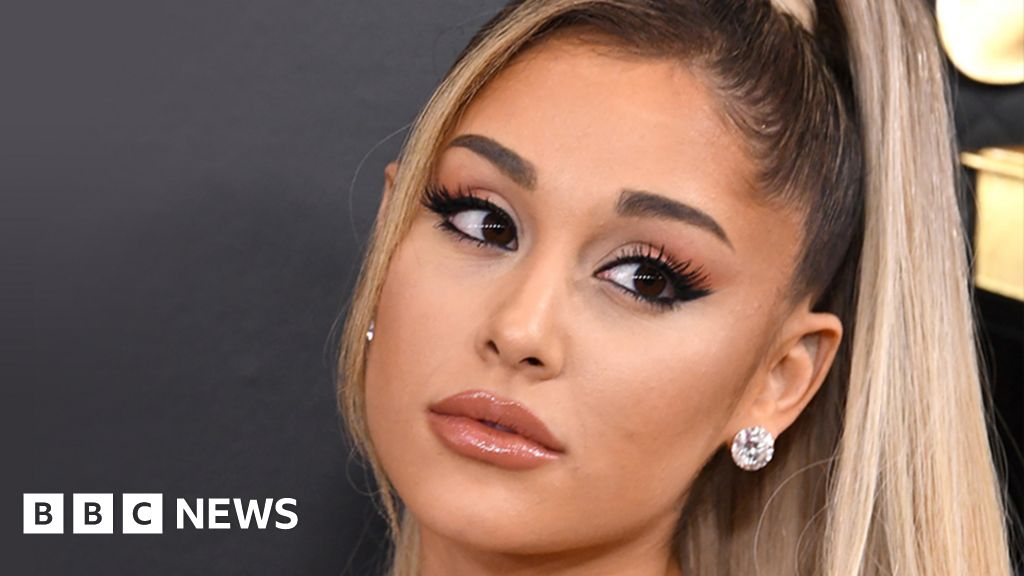Ariana Grande Says N Word: The Controversy, Context, And Conversation
Let me break it down for you real quick. When Ariana Grande says the N-word, it sparks a conversation that goes beyond just one moment. It's about understanding context, privilege, and the power of words. In today's world, where social media amplifies every comment or lyric, it's crucial to dive deeper into what happened and why it matters. So, buckle up, because we're about to unpack this big-time discussion.
Look, I get it. When a celebrity like Ariana Grande gets caught in a situation like this, it’s easy to jump to conclusions. But hold up, let’s not forget that there’s always more to the story. This isn’t just about a word; it’s about the history behind it, the impact it has, and how we as a society address these moments.
What makes this topic so important is that it touches on race, representation, and accountability. It’s not just about Ariana Grande saying the N-word—it’s about the bigger picture. So, whether you’re a fan or just curious, stick around because this is a conversation worth having.
Read also:Eel Pot Branford Ct A Hidden Gem For Fishing Enthusiasts
Table of Contents
- Ariana Grande Biography
- The Context Behind Ariana Grande Saying the N-Word
- The Controversy Explained
- Public Reaction
- Ariana’s Apology
- Lessons Learned
- The Role of Race and Privilege
- Ariana Grande’s Music and Cultural Impact
- Fanbase and Community Response
- What’s Next for Ariana Grande?
Ariana Grande Biography
Before we dive into the controversy, let’s take a moment to understand who Ariana Grande really is. Born on June 26, 1993, in Boca Raton, Florida, Ariana started her career as a Broadway performer before skyrocketing to fame with her role in Nickelodeon’s "Victorious." Since then, she’s become one of the biggest pop stars in the world, known for her powerhouse vocals and emotional ballads.
Ariana Grande’s Key Facts
| Full Name | Ariana Grande-Butera |
|---|---|
| Birthdate | June 26, 1993 |
| Place of Birth | Boca Raton, Florida |
| Occupation | Singer, Actress, Songwriter |
| Net Worth | $90 million (as of 2023) |
Her journey from Broadway to superstardom is nothing short of inspiring. But like any public figure, she’s faced her share of controversies, and this one is no exception.
The Context Behind Ariana Grande Saying the N-Word
So here’s the deal. In 2019, Ariana Grande was accused of using the N-word in a private recording from her early days as an aspiring artist. The clip surfaced online, and it didn’t take long for the backlash to roll in. Now, here’s the thing—context matters. The recording was from when Ariana was just 15 years old, and she was reportedly surrounded by friends who were using the word casually.
But here’s the kicker: privilege plays a huge role. As a white artist, Ariana’s use of the word carries different weight than if it were said by someone from the Black community. It’s not just about the word itself—it’s about the history, the pain, and the systemic issues it represents.
The Controversy Explained
When the clip came out, people were understandably upset. The N-word has a long, painful history tied to slavery, racism, and oppression. For many, hearing it come from someone in a position of privilege feels like a slap in the face. Critics argued that Ariana didn’t fully understand the weight of her words and the impact they could have on marginalized communities.
On the flip side, some defended her, pointing out that she was a teenager at the time and has since grown as an artist and a person. They argued that everyone makes mistakes, and it’s important to focus on how someone learns and grows from those mistakes.
Read also:Ford Tt700 The Hidden Gem Of Modern Automotive Ingenuity
Breaking Down the Debate
- Some fans believe it was a youthful error that shouldn’t define her career.
- Others feel that as a public figure, she should be held accountable for her past actions.
- Many pointed out that the incident highlights the need for ongoing education about race and privilege.
Public Reaction
The internet went wild when the news broke. Social media platforms were flooded with comments, memes, and think pieces. Some people were furious, calling for boycotts of Ariana’s music. Others were more forgiving, emphasizing the importance of growth and learning.
What stood out was how the conversation evolved. At first, it was all about cancel culture and whether Ariana deserved a second chance. But as the days went by, the discussion shifted to something more meaningful: how do we address these moments in a way that promotes understanding rather than division?
Ariana’s Apology
Ariana didn’t shy away from the controversy. In fact, she addressed it head-on, issuing a heartfelt apology. She acknowledged her mistake, expressed remorse, and committed to doing better moving forward. Here’s what she said:
"I am deeply sorry for any pain or hurt I have caused. I understand that words have power, and I take full responsibility for my actions. I’m committed to learning and growing from this experience."
Her apology was met with mixed reactions. Some praised her for taking accountability, while others felt it didn’t go far enough. Either way, it sparked a conversation about what a genuine apology looks like in the age of social media.
Lessons Learned
So, what can we take away from this whole situation? First and foremost, it’s a reminder that words matter. The N-word carries so much history and pain that it’s impossible to use it lightly. Second, it’s a lesson in accountability. As public figures, artists have a responsibility to be mindful of their words and actions.
But beyond that, it’s a call to action for all of us. How do we engage in these conversations without shutting each other down? How do we create space for growth and learning? These are questions worth pondering.
The Role of Race and Privilege
This controversy wouldn’t exist without the context of race and privilege. As a white artist, Ariana’s use of the N-word is inherently different from how it might be used within the Black community. It’s not just about who says it—it’s about the power dynamics at play.
Privilege is a tricky thing. It’s invisible to those who have it and painfully obvious to those who don’t. This incident highlights the importance of recognizing and addressing privilege in all its forms. It’s not about guilt or shame; it’s about understanding and empathy.
Understanding Privilege
- Privilege doesn’t mean you haven’t worked hard—it means there are systemic advantages you might not even realize.
- Being aware of your privilege is the first step toward creating a more equitable world.
- It’s not about being perfect; it’s about being willing to learn and grow.
Ariana Grande’s Music and Cultural Impact
Despite the controversy, Ariana Grande continues to be a cultural force. Her music resonates with millions of fans around the world, and her influence extends beyond just her songs. She’s used her platform to advocate for LGBTQ+ rights, mental health awareness, and more.
But this incident serves as a reminder that even the most well-meaning artists can stumble. It’s not about being flawless; it’s about being human. And being human means making mistakes, learning from them, and striving to do better.
Fanbase and Community Response
Ariana’s fans, affectionately known as the Arianators, are some of the most loyal in the business. When the controversy hit, they rallied around her, defending her and emphasizing her growth as an artist. But not everyone was on board. Some fans felt betrayed, questioning whether they could still support someone who had used such a harmful word.
It’s a testament to the complexity of fandom. People form deep emotional connections with their favorite artists, and when those artists make mistakes, it can be hard to reconcile those feelings. But at the end of the day, it’s about having open, honest conversations.
What’s Next for Ariana Grande?
As of 2023, Ariana Grande continues to thrive. She’s released multiple chart-topping albums, won numerous awards, and remains one of the most influential voices in pop music. But the controversy lingers, serving as a reminder of the importance of accountability and growth.
Looking ahead, it’ll be interesting to see how Ariana continues to navigate these complex issues. Will she use her platform to further discussions about race and privilege? Will she address the controversy again in her music? Only time will tell.
Final Thoughts
When Ariana Grande says the N-word, it sparks a conversation that goes beyond just one moment. It’s about understanding context, privilege, and the power of words. It’s about accountability, growth, and the importance of having open, honest discussions. So, whether you’re a fan or just curious, this is a conversation worth having.
As we move forward, let’s remember that no one is perfect. What matters is how we learn from our mistakes and strive to do better. So, what’s next? Keep talking, keep listening, and keep growing.
Kesimpulan
In conclusion, the controversy surrounding Ariana Grande saying the N-word is more than just a moment—it’s a catalyst for important conversations. It’s about understanding privilege, accountability, and the power of words. As we move forward, let’s focus on learning, growing, and creating a more inclusive world.
So, what’s your take? Do you think Ariana deserves a second chance? Let us know in the comments below. And while you’re at it, check out some of our other articles on music, culture, and everything in between. Let’s keep the conversation going!


